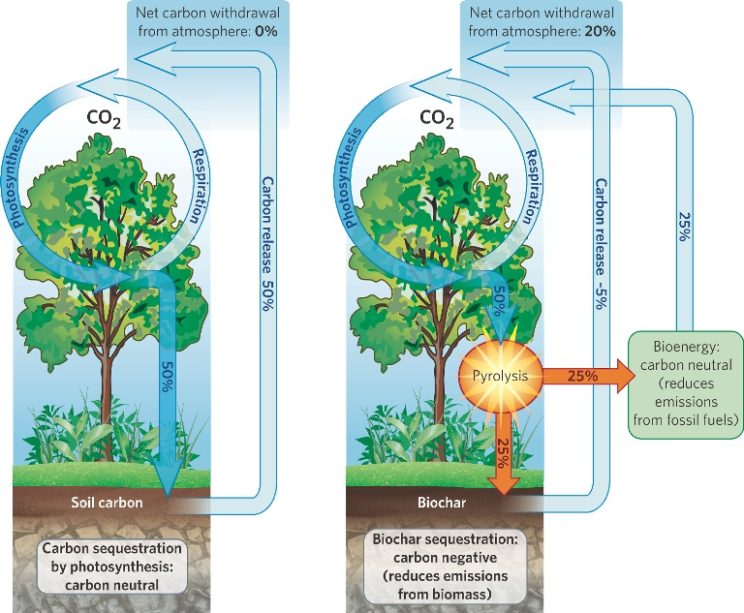Hey Everyone, I want to introduce something cool that has been introduced to me over the past few years and something I think many of you might find fascinating. It’s called Biochar and I believe it will be the next wave in the sustainability movement in the next few years. It’s nothing new but something that has been recently rediscovered and actually dates back to the Incas of Peru. It seems to be the current trend to rediscover ancient wisdom and technologies in order to get our current developmental trajectory back on track. But anyways, it’s totally awesome and could be a serious game changer for a few different reasons.
What is Biochar?
Biochar is organic matter that is turned into charcoal through a process called pyrolysis. Pyrolysis is when something is heated without the presence of oxygen. Historically this was accomplished by creating pits and burying the organic matter and creating a contained fire on the outside similar to a pressure cooker. The organic matter (grass, crops, manure, or whatever) being cooked then turns into a glass charcoal. This charcoal known as biochar is a porous substance that is great at absorbing, and retaining liquids. The main application for biochar is agriculture, because the porous biochar works well at retaining nutrients for long term plant absorption. Farmers will “load” the char with beneficial nutrients that will be used by the plant. The remarkable thing is how long the char holds the nutrients and how well it releases the nutrients for agricultural consumption. Biochar has been contributed with offering plants a 30% increase in their yield and great at helping plants through drought, since their porous structure helps to retain water as well. Furthermore scientist and environmentalists refer to it as a carbon sink since it sequesters carbon that would have eventually decomposed and released into the atmosphere, and instead turns it into charcoal that will essentially freeze it for hundreds if not thousands of years.

Biochar looks like a promising avenue for both farmers who want greater crop yields, and for environmentalists due to its carbon sequestering properties and its ability to reduce water and fertilizer consumption for farmers. However there are those that question if biochar will be the next biofuel and have similar downfalls because the land required to grow crops to turn into biochar, as well as it being an oxygen sink because rainforests land is being used to produce biochar. For more information into the growing argument check out this article. However I believe the real benefits will come when they use organic mass that is currently being thrown into the garbage as opposed to growing crops for the purpose of turning it into biochar. Regardless, biochar is something interesting to learn about and something that will start to get more and more attention over the next couple years.

